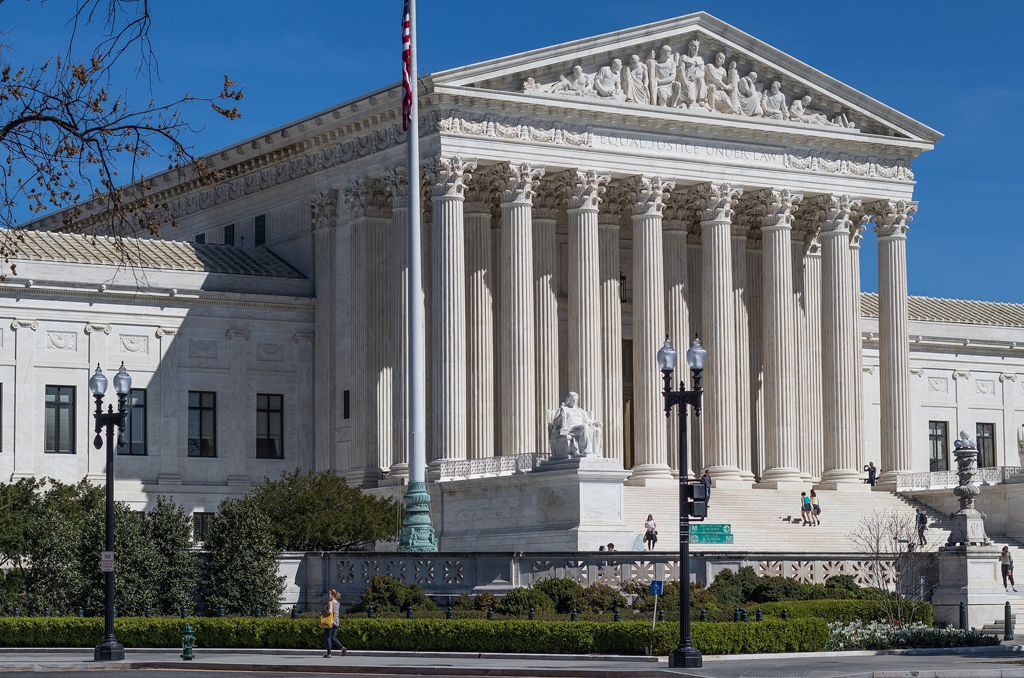U.S. Supreme Court. Courtesy: Image by Mark Thomas from Pixabay
The U.S. Supreme Court is scheduled to hear a long-awaited case about a river system that lies along the Florida-Georgia state line next month.
After years of back and forth arguments, the case about dividing the water in the Apalachicola-Chattahoochee-Flint river system stretching from Florida’s Apalachicola Bay to northern Georgia was scheduled for oral arguments on Monday, Feb. 22.
While the feud over the river system has gone on for years, it wasn’t until 2013 that Florida filed the lawsuit against the state of Georgia, contending that its neighboring state was using too much water from the system, ultimately contributing to the damage in the Apalachicola River system and the oyster population in Franklin County’s Apalachicola Bay.
In December 2019, Federal appellate Judge Paul Kelly declared that Florida failed to sufficiently show Georgia’s water consumption was detrimental enough to cause problems in the Apalachicola River and Bay systems, delivering a devastating blow to Florida’s argument.
Judge Kelly, a special master appointed by the Supreme Court, had his recommendation reviewed by the Supreme Court, where Florida and Georgia’s 2020 briefs pointed to stark differences regarding the water issue.
Florida’s attorneys argued in one brief that, “The harm to the Bay’s oyster fisheries is undeniable. Apalachicola is renowned across America for its oysters, which account for 90% of Florida’s oyster harvest and 10% of the nation’s. What’s more, oysters — and oystering — have created a distinct way of life in Apalachicola passed down from generation-to-generation; whole communities depend on the fisheries for their economic livelihood. The oyster is to Apalachicola what the lobster is to many New England towns.”
Conversely, Georgia argued later in the year that Florida’s request for “equitable apportionment” of the water in the river system was essentially a way to place limits on Georgia’s water use— unequivocally creating lasting consequences to its state economy.
The document Georgia submitted expressed their thoughts that Florida was exaggerating the amount of water being taken from the system and that “the cap Florida seeks would yield only minuscule benefits to Florida while inflicting enormous costs on Georgia.”
Kelly was appointed to his special master position after Ralph Lancaster, another special master, submitted a recommendation to the U.S. Supreme Court in 2018 and later overturned it, saying Florida hadn’t proven its case “by clear and convincing evidence” to impose a cap on Georgia’s water use.
Lancaster reportedly applied an overly strict standard in rejecting Florida’s claim at the time, per Supreme Court Justice Stephen Breyer.
“I do not recommend that the Supreme Court grant Florida’s request for a decree equitably apportioning the waters of the ACF (Apalachicola-Chattahoochee-Flint) Basin because the evidence has not shown harm to Florida caused by Georgia; the evidence has shown that Georgia’s water use is reasonable; and the evidence has not shown that the benefits of apportionment would substantially outweigh the potential harms,” wrote Kelly in his backing of Georgia.
Last month, the Florida Fish and Wildlife Conservation Commission placed a temporary ban on the harvesting of Apalachicola Bay oysters through the end of 2025, citing overharvesting and a drastic decline in water quality in the area.
Are you interested in Florida’s government? For stories like this and much more: Florida Insider is dedicated to educating, entertaining, and informing its readers about everything Florida. Easy to read content at the palm of your hands and covering the stories that matter.
Mike has more than 30 years of experience in marketing and public relations. He once owned his own agency and has worked with some of the largest brands in the world.

